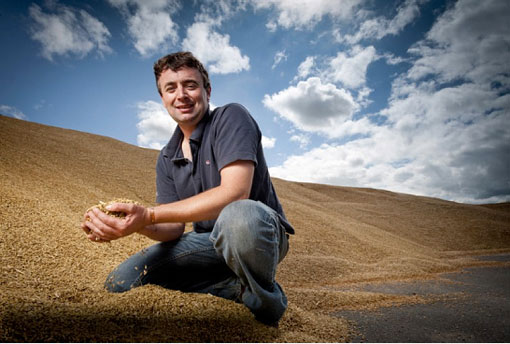Yields not as poor as first feared for Philip Reck

Early indications have shown that yields of some crops are not as poor as was to be expected after such a wet growing season. Robust fungicide and growth regulator strategies have paid off and most crops are still standing, but only just.
While it was looking like a late harvest, crops have turned quickly and are ripening fast. This is surprising as good weather is a scarce commodity and heavy rain has been falling regularly, making any harvesting a stop, start affair. Winter wheat and winter oats are sprayed off and we are working our way through the spring barley, mindful of the weather. I don’t want to get too far ahead of the combines.
Ground conditions are deteriorating slowly; thankfully one of the New Holland combines has a 4wd system. This helps to keep the combine moving through the softer patches and doesn’t allow it to create ruts as easily as the other combine when traction is lost. Soil structure damage is inevitable though; my aim will be to minimise this damage as prevention will be impossible.
Cultivation will be difficult on heavier land if the weather does not improve. Oilseed rape planting will be dependant on the weather for the remainder of August. The combination of wet soils and high slug pressure make it increasingly unlikely that it will be sown at the ideal timing; a wait and see approach will prevail. If this proves impossible, winter oats will be sown instead.
I also had a visit from my counterpart in Northern Ireland, Allan Chambers, and The Ulster Arable Society. It’s great to meet arable farmers from other areas and discuss the issues which we all face. Their gift of a bottle of Bushmills 10-year-old whiskey may be needed before the harvest ends, solely for medicinal purposes.
Philip Reck manages 1,050ha of light to medium loams within 20 miles of Enniscorthy, Co Wexford, Ireland. Cropping is cereals and oilseed rape, all min-till established.

